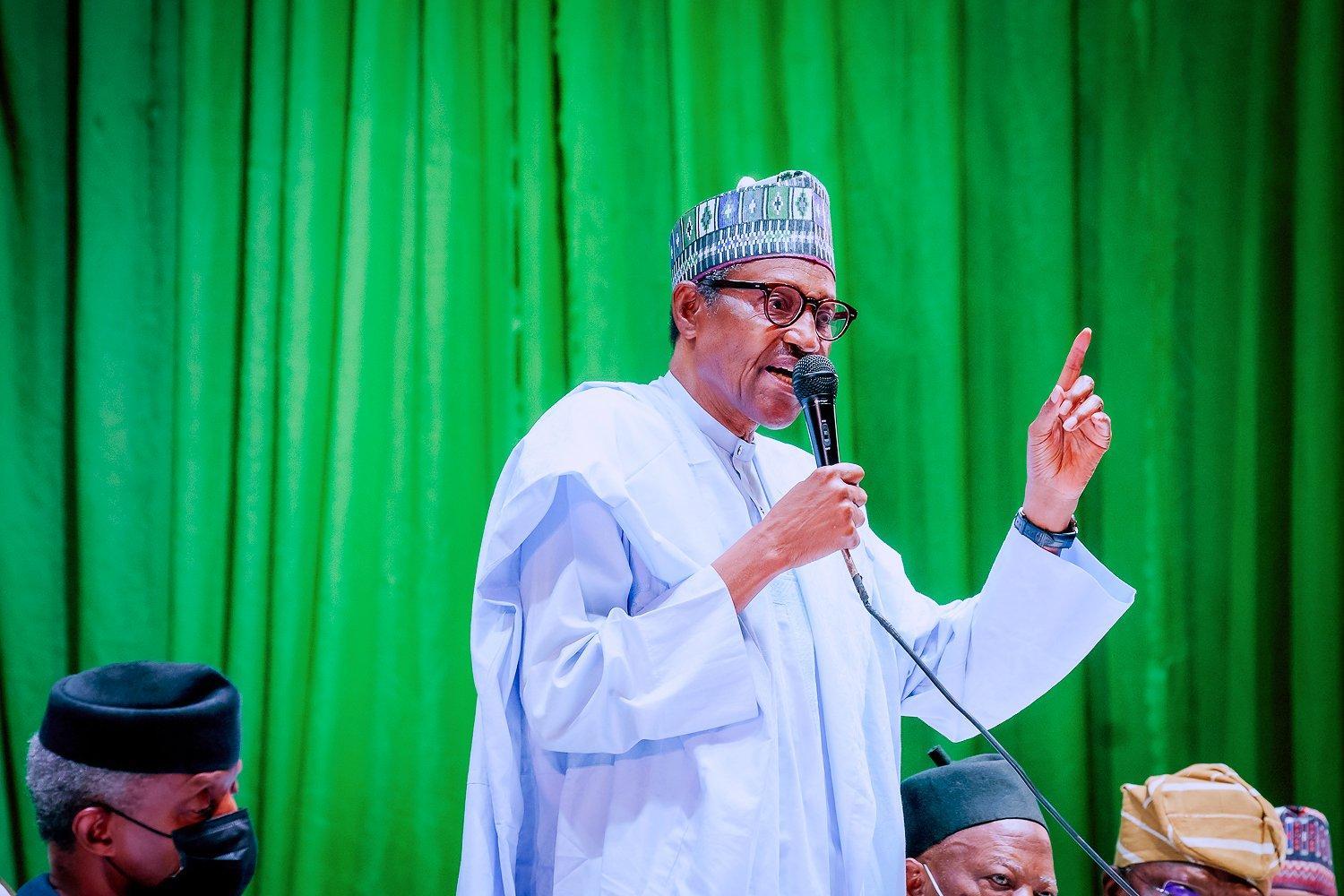Fake news demoralising security agencies — Buhari
President Muhammadu Buhari says fake news and misinformation is fuelling apprehension among Nigerians and demoralising the security agencies. He said this in Abuja yesterday during the Citizens Summit for National Integration, Peace and Security organised by the Nigerian Institute of Public Relations (NIPR). We’ll partner Nigeria on 2023 elections — India NIGERIA DAILY: Why Dariye […]

President Muhammadu Buhari says fake news and misinformation is fuelling apprehension among Nigerians and demoralising the security agencies.
He said this in Abuja yesterday during the Citizens Summit for National Integration, Peace and Security organised by the Nigerian Institute of Public Relations (NIPR).
- We’ll partner Nigeria on 2023 elections — India
- NIGERIA DAILY: Why Dariye Is Still Seen As The GodFather Of Politics In His State
Buhari, represented by Information and Culture Minister Lai Mohammed, also reiterated his call on the security agencies to take the battle to terrorists and bandits.
He recalled that his government had in 2017 decided to tackle fake news and misinformation as it devoted the entire National Council on Information to the issue.
“I’m glad that many CSOs have taken up this challenge of tackling fake news and misinformation, just like I’m delighted that a number of newspapers have set up fact-checking desks,” he said.
Buhari noted that he had directed the military to take the battle to the terrorists.
He said just as his administration had put the seemingly intractable farmers-herders crisis under control, it would also successfully crush the terrorists and bandits.
“As our security agencies put them on the run, they’ll no longer be able to carry out their
deadly attacks as well as kidnappings. Peace and security will return to our country, and our unity will be strengthened,” Buhari said.
President, NIPR, Mukhtar Zubairu Sirajo, said the summit was a product of research conducted by the governing council of the NIPR to identify factors responsible for the current situation in Nigeria.
He said: “The outcome revealed a widening trust deficit at three levels – between government and the citizens, between and among the various ethnic and socio-cultural groups, and generally among the citizens as communication among them has taken a nosedive because even where and when it happens, it largely appears to be of the violent variant.”
“The research also revealed a collapse of core national values, citizens’ despondency and apathy on issues of national development. These have tended to weaken the fabrics that have held us together as a people.”
